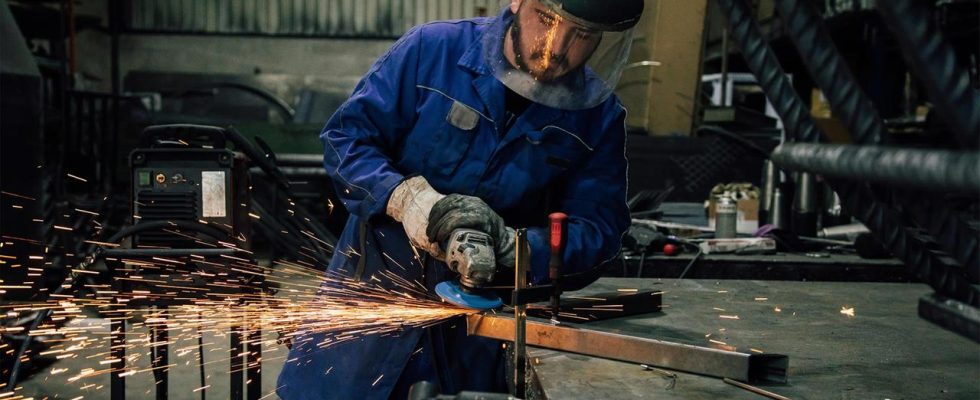The shortage of skilled workers is a threat to prosperity in Germany and it is getting worse. Where there are no specialists, there are no successors either. What is so deterrent about self-employment?
It’s noisy in Wolfgang Greiner’s workshop. His employees grind metal. They have been building stair and balcony railings for the capital here for 30 years. Greiner built the business from scratch and he has a lot to do. “We have never had any problems with the order situation in the last ten years,” says the 63-year-old.
Retirement is getting closer for Greiner. For five years he has been trying to find out who could take over his company – so far without success. “It is of course very, very difficult in our time to inspire young people to go this way. But of course you have the hope that someone will still be found.”
succession problem is also one skilled labor problem
The fact that he cannot find a successor also has to do with the lack of skilled workers, and that is one of the most pressing problems in the industry, according to the 5th East German Entrepreneurs’ Day in Potsdam. The shortage of skilled workers threatens the economic future of the East German economy. The effects were evident earlier and more severely in eastern Germany than in other parts of the country. Companies are currently facing major challenges.
Shortage of skilled workers, energy transition, ecological transformation: Those who are looking for a successor for their company in this situation have it particularly difficult, says the IHK Potsdam. “The continuing and worsening shortage of workers and skilled workers does not make it any easier to find new bosses in the company succession,” says the association.
Better to be employed than boss
15 years ago, Wolfgang Greiner always had around 30 applicants for training positions in his company, but now there are none. The market is empty. And the few who did an apprenticeship and ultimately even decided to do a master’s degree preferred to be employed rather than become bosses themselves, says Greiner: “Craft is a strenuous job. It’s physically very strenuous.” The younger generation attaches more importance to fixed working hours and mandatory vacation days.
In addition, many shy away from the responsibility of self-employment, the boss of the Glindower brickworks in Brandenburg also notes. Harald Dieckmann now wants to retire at the age of 71. He has been looking for a successor for five years. In the brickyard they make red brick. The bricks from here have already been used in the Marienkirche in Munich and the Rostock water tower. A traditional craft that was difficult to make ends meet in the Corona period.
It is all the more difficult to find a successor. “The company is very close to my heart. It has tradition, is of architectural importance, it’s just a nice job,” says Dieckmann. An applicant recently applied. However, the 71-year-old does not want to reveal much about it. He still doesn’t dare to have too much hope for it.
It’s over without a successor
If locksmith Greiner doesn’t find a successor in the near future, he will have to close the Berlin company and rent out the large factory building – as part of his retirement plan. In two and a half years, his wife will also be retiring, at the latest then they want to enjoy the time together and maybe take a trip around the world by boat. “Ultimately, it would be a shame if you put an end to this and know that a healthy, grown company will not be continued. That would be sad.”

